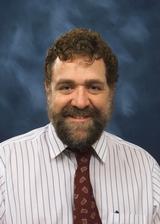A Middletown physician has been sanctioned and fined by the state banking department for selling unregistered securities to investors, including at least one former patient, and using some of the proceeds to pay his medical malpractice insurance.
Dr. Wayne P. Franco, who is the majority owner of three limited-liability companies including New Heart LLC, which promises medical innovations through stem-cell research, was fined $10,000 and barred from improperly selling securities to investors, in a recent consent order approved by state banking officials. Franco’s dealings with patients were featured in an October 2011 story by C-HIT.

Dr. Wayne P. Franco
The consent order alleges that Franco sought investments in his companies as an unregistered agent, and that he failed to disclose to investors that approximately $29,000 in solicited funds were used to pay for his medical malpractice insurance.
The banking order directs him to cease and desist such improper solicitations, and to retain experienced legal counsel to handle necessary regulatory filings and provide the Connecticut Banking Department with 30 days’ advanced written notice of any such securities offers.
Franco could not be reached for comment, but he has previously said he did nothing improper.
His attorney, Edward Taiman of Hartford, said Wednesday that the money Franco raised from investors went to “real, valid stem cell research.” He said that some of the money was used to pay for malpractice insurance that covered both Franco’s physician practice and his research.
“He was never taking investors’ money and using it for his personal expenses,” Taiman said.
C-HIT reported in 2011 that the state departments of banking and public health were investigating complaints from several of Franco’s former patients that he had solicited more than $60,000 from them to invest in his stem-cell research companies while he was treating them, or shortly before he began treating them.
The four patients who filed complaints with the Department of Public Health (DPH) said they had been discharged from Franco’s practice when they asked for information about how their money was being used.
The Banking Department’s Securities and Business Investments Division received complaints from two of the patients, charging that Franco sold them unregistered securities without meeting legal requirements.
Franco’s New Heart, LLC, was formed in 2004 with the goal of using adult stem cells for treatment of heart disease, diabetes, osteoporosis and other ailments. The company is particularly focused on harvesting dental stem cells from wisdom teeth, according to its press releases.
DPH prepared an investigative report in early 2011 that raised questions about whether Franco’s receipt of more than $60,000 from his patients, beginning in 2005, violated standard-of-care or ethics rules – allegations that Franco strongly denied. The agency has not taken any action against Franco’s license to date.
The case raised ethical questions about the nature of the doctor-patient relationship, and whether it was proper for a physician to solicit investments from patients for private ventures. The American Medical Association’s code of medical ethics discourages doctors from asking their patients for money, in part because patients—already in a vulnerable role—may feel undue pressure to comply with solicitation requests.
In DPH documents, Franco denied unethical solicitation of money and said the investment agreements bore no relationship to his practice of medicine.
Taiman said Franco would comply with all relevant state banking regulations if he seeks further investments in his research companies.